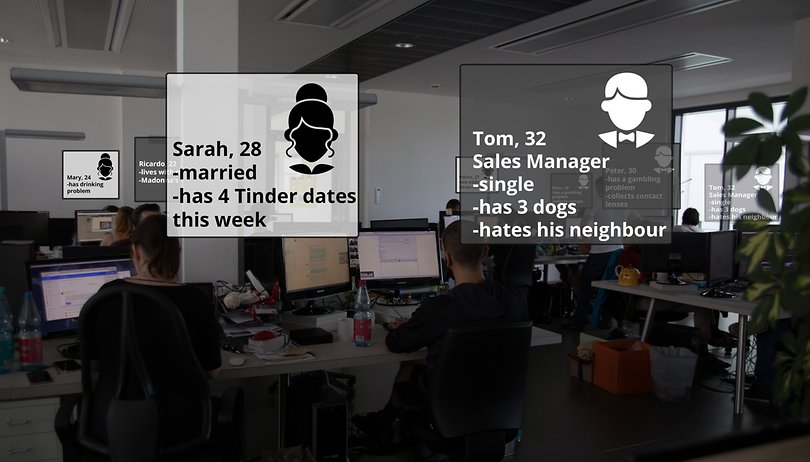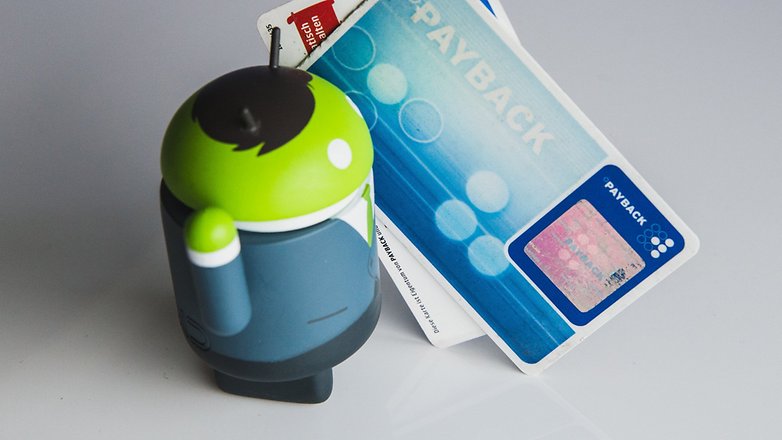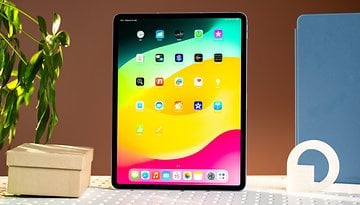Why privacy matters to everyone (and not only those who've done something wrong)


We live in troubled times. Currently, one has the impression that around the world there are people in power who only have their own personal interests in mind. And it seems that only the loudest have a voice. Whether in the UK, the US, Russia or in Turkey – objectivity appears to be on the retreat, and policies appear more radical.
At the same time we're trusting companies more and more with a precious resource: our data.
"Not another privacy debate", I hear you groaning. Some may say that if you haven't committed a crime then you have nothing to fear. And who cares about where you go, what you write or what things you ordered on the internet?
Without data, many business models today don't work
I am one of those people who is fairly careless with their data. After all, I get a lot for it: office programs, like Google Docs, email, free entertainment from YouTube or a virtual coach with Runkeeper. Instead of money, we pay with our data – for example, what videos we watch. From this data our interests can be extrapolated, and before the next free video we watch, perhaps, the latest Star Trek trailer is suggested or used as an advertisement. Or maybe a running app learns which shoes its users prefer and sells the advertising space based on this information.
So far so good. This may well still be understood as a service, although not an optimal one. But what if we remove the marketing lens and replace it with a totalitarian state? Now, more could be derived from the data. Emails and social media messages point to, for instance, political views. Videos could be displayed with political statements instead of a piece of marketing collateral. And whole movement and behavioral protocols and patterns can be established to denounce, track or monitor people.
Admittedly, this is a nightmare scenario that I (hitherto) have dismissed as dystopian science fiction. Even with the advent of the USA Patriot Act – a law that allows data stored in the US to be accessed by public authorities with relatively little effort – I could hardly imagine a situation where anyone (let alone I) could be in the crosshairs of state institutions. Only the United States is, in my view, able to access such comprehensive data stores (almost all successful Internet companies are in the US), to analyze them and possibly establish connections.
It starts with unwanted profiling and ends with unwarranted government activities
Target regularly sends coupons to customers via various digital methods. Some time ago in Minneapolis, the headquarters of the retail giant, an angry man stormed into the store and confronted the store manager about inappropriate vouchers that were sent his daughter. “My daughter got this in the mail!” he said. “She’s still in high school, and you’re sending her coupons for baby clothes and cribs? Are you trying to encourage her to get pregnant?”

After reviewing the coupons, the store manager had to admit that the vouchers for changing tables and maternity clothes were obviously addressed to the daughter. He apologized sincerely to the girl's father, and a few days later made a follow-up call to further amend the situation. On the phone, though, the father was somewhat abashed: “I had a talk with my daughter,” he said. “It turns out there’s been some activities in my house I haven’t been completely aware of. She’s due in August. I owe you an apology.”
That was in 2012. What happened? Of course, Target didn't mistakenly send this ad to the young woman. Rather, the algorithms of the company worked so well that it could classify her as 'pregnant' based on her buying behavior.
Such algorithms are based on 'Big Data', something that is not only available to marketing departments. It stands to reason that authorities rely on the power of data and could therefore intervene before something happens. In Germany, the Bavarian police have conducted several field trials for 'Predictive Policing', which means a crime without an actual offense being committed. Think 'Minority Report' but with conjecturing computers rather than divining humans.
'Predictive Policing' is already a reality in Germany
At first, it doesn't sound all not bad; especially in the troubled times in which we currently live where people yearn for a sense of security. But what if the algorithms got it wrong, or if someone suddenly falls in the crosshairs of investigators just because their activity is a superficial reflection of a would-be terrorist's.
Imagine this scenario: a young man likes to go to an ice cream shop, which coincidentally is next to a Jihadist meeting point. But this boy has no knowledge of this. Ongoing renovation work on his flat means that the young man also buys bleach, lime and other potentially dangerous materials from the hardware store. The algorithms of intelligence strike, and the next time he tries to return to the US to be with his family, this young man is denied entry at customs.
... And who watches the watchmen?
Now, one might assume that such a misunderstanding could be avoided. However, the amount of data used in profiling is growing steadily, and data processing is making greater use of neural networks to master the flood of information. Neural networks operate with very simple rules, but rudimentary laws created an apparatus whose exact function is difficult, and in retrospect, can no longer be understood. But how do you explain this to a profiling victim if the fatal output is the result of a black box, and the input because of the sheer volume is no longer available?
Additionally, our data is only safe as long as it's not being misused. For a long time I felt sure that this would never happen. Even the Patriot Act, which, for me, was a gross encroachment on our civil liberties, seemed like something where the ends justified the means. A government using such a powerful tool – our aggregated data – arbitrarily seemed completely unrealistic.
Our cluelessness towards privacy can probably be explained by the fact that we rely on and accept our laws very broadly. This is tenuous, though, as you can see in France, which is forced, due to the terror attacks, to provide its government with special rights and to extend this mandate once more. So what if a totalitarian state had at its disposal such vast quantities of data? Could we be sure that such a group would not use this data for clearing several thousand dissenting public servants from its ranks? Could such events even impact Western democracies?
Not proselytize, but enlighten!
To be honest, many privacy-related articles on the web are pretentious and contain very pedantic arguments which usually leave us with the conclusion that: 'You should be on guard – Skynet is close!". These are, of course, just conspiracy theories and miss the real issue. They don't contribute to a healthy discourse on this very important discussion.
I would like to help in elucidating and raising awareness that all that our digital footprints, could eventually be used against us regardless of whether we have done wrong something or not.
So, in the spirit of this conversation:
"I'll be back!"
Please let us know what you think about this discussion in the comments.


















I have always been very concerned about how our privacy is under attack. For instance our emails are not protected in the same way our mail is protected.
The solution, as I see it, is absolute openness from our government. Every email, phone, text, from every one in government, police, congress - anyone who currently has the ability to invade our privacy - be available to everyone without filtering or time lag. No protection. No public security exclusions. What's good for the goose is good for the gander. If they can see ours, we should be able to see theirs.
Great article. Your right about the Patriot Act. The law should be reformed, or just completely eliminated, and they should just start over from scratch again, with a different set of rules. One that doesn't intrude on everyday people, and hand out all their data without their consent, or knowledge. The law sounds down right patriotic till you yourself actually read, the fine print of the law. I guess people really don't look into details enough anymore, and think just like a bass, or catfish looking at a big fat worm on a hook, they just take the government's bait, hook, line and sinker. You would think while reading all of discussions about the law on the internet, a lot of people just read the name of the it, and think because of the wording of the law, the Patriot Act has to be patriotic. To be honest, I myself didn't know the part till after reading this, that your private information can, and is probably being accessed pretty easily by (public authorities because of the Patriot Act). I guess, no matter how much security you think you have, and regardless of your good intentions, they (the government) and everyone else that you do not want to have your information, probably already has it. And your data is going to be misused by anyone, and everyone, all day long, and no matter your preventive measures you take to stop it, for any and all purposes, and always without your consent.
Personal Data has value... name anything of value that is free from criminal activity or corruption...?
Your faith and thoughts
security vs. privacy - are two key arguments clashed in this debate.
The question is who has access to my data and how it can be used against me? (for example, potential identity theft)
Also, how it can be used against us as a society? (for example, allegations that google or Facebook are tweaking the algorithms and using data to promote one candidate over another could be true, right?)
The problem in this discussion is that there is no way to completely reject the arguments of the other side - there will always be a risk of hacking or data leak. On the other hand, there is always a risk of misusing the data even by the state, probably, first of all, by the state.
I am hopeful that the answer is not black and white and we can all find a middle-ground that ensures maximum security of my data while enabling me to enjoy my time online and offline.
Well the thing is that we are not just talking about governments like Germany, USA, Canada etc. What about China and the likes? If they get their hands on the huge amounts of data, who knows whats going to happen.
It is a huge problem and I try to only give Google my data, why? Well because I trust Google the most. Perhaps naiv, sure, but its just how I feel.
In general concentration of a lot of data in the hands of a small group of people or one entity is dangerous on so many levels - no matter if it is a state or a private corporation.
Just think about the all-in-one WeChat - you can buy, review, discuss, order, pay find and the list goes on without leaving the app. That represents a huge amount of power for the company.
Also, I do not buy into the debate that China's data collection efforts are essentially evil and all the Western States are doing it purely out of my best interests. We should not be deluded by that - data is power and power corrupts irrespective of race or nationality or location or anything else.
Some really interesting and important ideas here. Thanks for sharing this Fabien..!!
This is a good article with good points. In reality there is little privacy in todays world. What amazes me is the way people willingly give up all their privacy on social media. People should be very aware of what they share and limit personal data much as possible. It is necessary to give out some data when using the internet and smart phones. You can limit that with your privacy setting and turning off certain apps and functions when they are not being used.
Yea I do agree. I have to admit tho that I totally forgot about the apps for a while. I was shocked how many apps I actually gave access to my FB account, there is not a lot on there, but still. But good point Mark!
There's a difference between ME giving up my data and someone else taking it without my knowledge